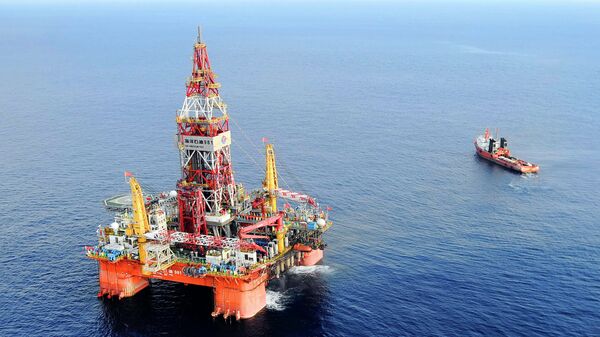The ministers also noted that not enough attention was being paid to how trade tensions impact China’s petroleum demand and the consequences it could have for Beijing’s economic growth.
Radio Sputnik discussed this with Rajiv Biswas, Asia-Pacific Chief Economist at IHS Markit.
Sputnik: How justified are the concerns voiced by Bahrain and Oman with regard to this?
Rajiv Biswas: There definitely is international concern about the impact of the US-China trade war, which has escalated considerably in the last couple of months and what effect it could have on the Chinese economy. I think, in terms of the impact this year, because major measures from the US only really started in July, we don't expect too much impact on the overall growth rate for this year, although, of course, there may be more impact in the fourth quarter if the trade war continues into that period. The bigger question is: what about next year, and could this become a bigger drag on the Chinese economy? I think that is a risk because the US has already put tariffs on about $50 billion in Chinese exports and is talking about putting additional tariffs on a further $200 billion in Chinese exports. If that were to happen, it would have a more negative impact on the Chinese export sector. In context, I would say that China is a very big economy which is very much driven by domestic consumption now; it's not as dependent on exports as it used to be, say, 10 years ago, so the impact would still be relatively moderate but nevertheless we could see a drag of a quarter per cent of GDP growth next year if the US takes the steps that it's indicating it might in terms of tariffs on another $200 billion.
READ MORE: US to Ensure Oil Shipping Amid Iran's Threats to Block Hormuz Strait — Reports
Sputnik: Is Beijing's potentially reduced demand for crude and the consequences this is going to have with regard to China and the exporting countries in the Middle East going to be further exacerbated by the situation with Iran? Could China be calling on Iran to supply more oil because it's not ordering so much from other countries? What's the correlation?
Rajiv Biswas: I think what's important now is actually that China is reducing its orders of US crude oil. Because the Chinese importers are reducing their US crude imports, they're likely to switch their orders to other countries. And of course, the Middle East should be one of the beneficiaries of that, although we are seeing some negative impact from the trade war on oil demand from China. We're also seeing China taking measures to reduce US oil imports in a direct way that will benefit other suppliers, particularly in the Middle East. I would say it would be relatively across-the-board; they may list their orders from other suppliers in the Middle East, and that would probably be beneficial to some of the countries in the Middle East on the basis that it's a marginal impact on their economy next year. What's unknown now is how far this will escalate further. The US administration has threatened even to put tariffs on all Chinese imports and in that case, of course, the economic impact on China would be greater, and that could result in a more significant hit to GDP, and that could hurt Chinese imports.
READ MORE: Iran Mulls 'Solutions' to Sell Oil Bypassing US Sanctions
Sputnik: China has recently announced it will provide a 60-billion USD package of aid investment loans to Africa; what impact could this have on Beijing's influence in that particular region?
Rajiv Biswas: I think China's already been very active in trying to support economic development in Africa in the last decade. With the Belt and Road Initiative, China has invested in building quite a lot of infrastructure, like railways or ports in African countries. And now (Beijing is) obviously looking to provide much more support in terms of helping infrastructure development in Africa. A lot of the developed countries have turned their attention away from Africa; they're concerned with their domestic problems within the EU. We see that in the US there is a focus shift towards the domestic situation. So, Africa is really struggling. Actually, it's the EU that is the biggest immediate (at risk place) in terms of migration, and outflows from Africa trying to enter Europe and also other negative implications. I think what China is doing is actually very much needed.
The views and opinions expressed by the contributors do not necessarily reflect those of Sputnik.

